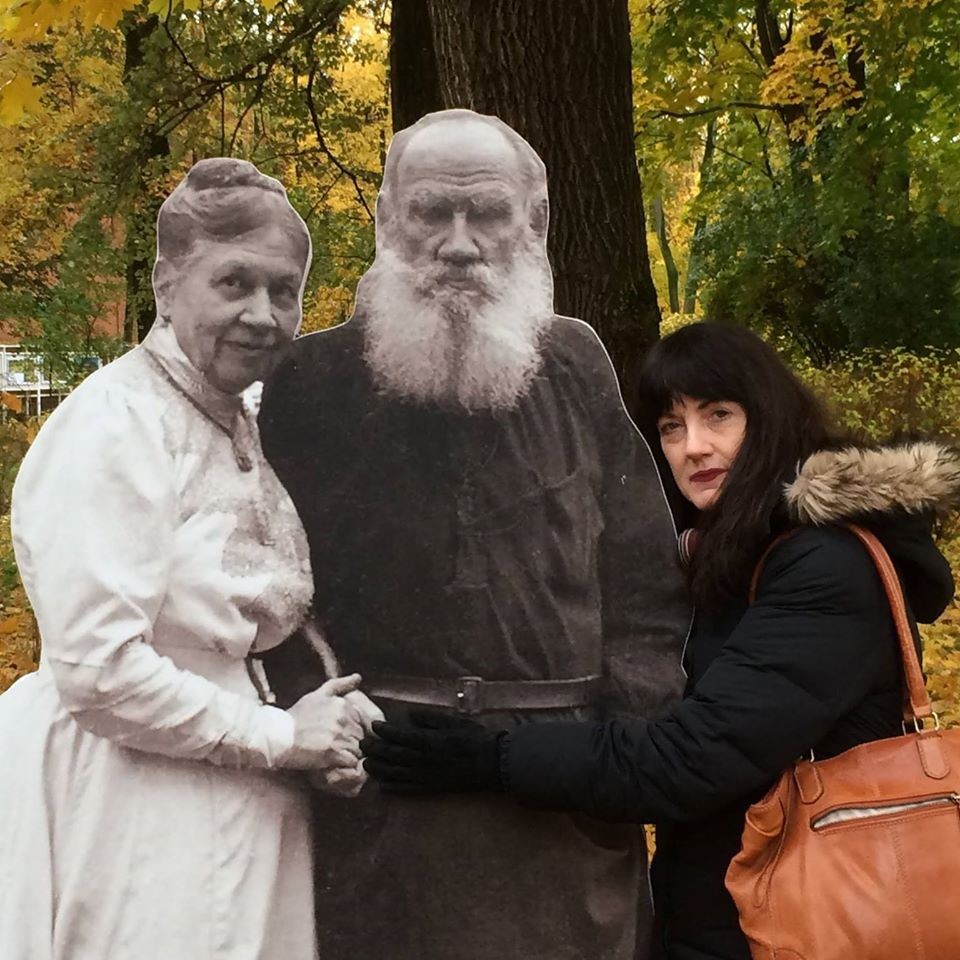Controlling her anger was one thing. But it didn’t stop her ramming his car.
Nathan had been dead for a year. The grief took control for a time, dictated her needs and wants. But one rainy morning she awoke without thinking of him. With her head nestled into the pillow, the doona a near-perfect temperature, for a moment she was almost content. She felt almost like getting out of bed. But then the neighbour began drilling, a dog yelped, and the anger in her throat rose like acid. Bare anger, raw and bloody, not bandaged in grief.
The anger had started when she was in her forties; mild, vaguely uncomfortable. She remembered how she laughed at her father when he became a cranky old man. How she and friends would roll their eyes at her forever grouchy mother. In her twenties and thirties she wasn’t bothered by people driving tank-like cars (maybe because there were so few then?); by drivers not thanking her when she kindly let them in; when dog-owners failed to collect their pets’ shit . Back then there’d be the pang of annoyance, but it would be fleeting, like her feelings then of weariness or frustration. Now that annoyance seethed in her chest like heartburn.
On the phone a few months ago Vivian sighed with her customary ennui. ‘Stop whining, Mum. Why are you always so fucking angry at me? At everything? You need help, woman.’ Felicity had chuckled before realising her daughter was serious; as the rage choked her voice box she ended the call. Two glasses of red later and her lips were still as pinched as Gladys Kravitz’s from Bewitched. She’d realised this when the morning light in bathroom mirror revealed her whole face as drawn, liver-coloured, her fading hair pulled too tight off her forehead, her once beguiling large eyes beady.
(And it was so irksome that Bewitched was no longer aired.)
After yet another argument with Viv, her daughter had bought her a book on how to control anger, and suggested a therapist who might help, but Felicity had seen enough therapists in her time and the memory of them just made her, well, angry.
Like the therapist who kept stressing mindfulness when Felicity’s problem was an inability to concentrate. Or the one who, at the beginning of the session, announced that her fee was whatever Felicity felt should be paid (How do you listen to a session when panicking over what to pay?) Or, many many years ago when she young and stupidly thought money would fix all her ailments, long before she met Nathan, the very inexperienced therapist who, when Felicity mentioned she hoped to be rich, regaled her with stories of his Maserati.
The book Viv forced on her, something to do with an anger toolkit, was full of ideas such as: Get some exercise…Don’t hold a grudge. Duh. Her only half-heartedly effective idea when anger threatened (at, eg, someone’s car parked dangerously close to her driveway; or the lack of trolleys and staff in Coles or Woollies) – the only idea that worked was to close her eyes, imagining the anger as a small ice block in her chest, melting away…
It worked, occasionally.
But the injustice of the world, be it developers building Soviet-dull housing blocks nearby, the homeless being removed from Martin Place, or the antics of the Trumps and Putins, would cause her blood to boil.
Anger, she knew, was a side-effect of ageing (but why? That unfairness just made her angrier), that would help no one. She could write exasperated letters to the Sydney Morning Herald, complain to her bank in never answered emails, spend an hour working out how to lodge a complaint with Uber or Telstra – but was keenly aware none of it was world-changing. Especially not ‘liking’ someone’s rage on Facebook or X.
The anger was softer, more subdued, when she remained in bed. Since Nathan’s death the plants in the backyard had overgrown, dust thickened her framed photos and the windowsills. She didn’t have the energy anymore meet friends for a coffee, let alone cook dinners for them. Without Nathan it all seemed, well, useless.
You’ll get over it, texted a friend. Anger – it’s part of the grieving process. It’ll pass.
So she lay in bed, waiting for the anger to leave her be. Told herself that in a few weeks (months?) she might feel better. Might find a desire to visit the cinema or the art gallery, or even travel. She now could visit countries in which Nathan had shown no interest. Travel with a girlfriend, if their partners permitted.
If their partners permitted. Just that sent her seething.
After a week of bed rotting (an accusation her daughter had apparently learned from Tiktok, but which she found she quite liked), she realised her breath stunk, her hair was knotted and greasy, her pjs and undies clung worryingly close, and suddenly, worse than all that, she was bored. She’d binged enough tv shows on Netflix, had buried her head in too many crime novels, was sick to death of Wordle and Sudoku.
After a shower she sat with a strong cup of tea, her clean hair wrapped in a towel, watching a breeze fuss with her lemon trees. As the autumn wind cooled her heart she felt, for the first time, a peace, of sorts.
She unplugged her charged laptop and finally opened her emails. Apart from the hundreds of unwanted promotions and updates were more vacuous outpourings from friends and acquaintances. Faintly annoyed, she starred the ones she really should answer some day, deleted those from names she didn’t recognise, and was close to slamming the laptop shut when she noticed the name of an old friend of Nathan’s. A funny guy, a journalist who’d worked with her husband in the newspaper’s sports section, she’d always liked Xavier despite others finding him confronting, tactless. Maybe it was just the daring way he wrote, his audacious turns of phrase, but she was so surprisingly enlivened by his invitation that she immediately answered yes. She’d forgotten his dark, unpc humour, was overwhelmed by a need for it.
They met for a drink on Crown Street. Small with a subdued gold light, but open to the footpath, the bar was luminous yet secluded. It had taken all her energy to get dressed and made up but as she settled she was pleased she’d come. No regrets, so far. And he was an attractive man; paunchy, yes, but still with that mane of silver hair and his caramel baritone.
Enjoying herself she agreed to have dinner with him. The meal was light and tasty, the wine he ordered expensive. After they’d both said no to dessert, she asked how his job was going, apologised for not mentioning it earlier.
He took a mouthful of shiraz. ‘Well. That brings me to a matter I wanted to raise with you. I’ve actually left the paper. The industry, in fact.’
‘Really? Why?’
‘The pay, the way the big bosses treat journos now, the stress. AI creeping in. It wasn’t worth it anymore. So I took a huge sideways step and moved into…’ He drummed his fingers on the table. ‘Real estate!’
She stared at him. ‘You’ve got to be kidding. I thought you hated it. You were always on about how it was the lowliest trade.’
He grinned. ‘True! But it could be so much more dignified. It needs people like me to make it a more noble profession.’
She laughed, then stopped. ‘You’re not joking.’
He talked about the necessity for estate agents who understood the needs of new homeowners and the greediness of developers. She watched him, unable to kill the smirk on her face, and when his rambling died away she shook her head.
‘Okay,’ she said. ‘I believe you – I think.’ She raised her glass and tapped his. ‘Here’s to your new vocation! It actually is pretty brave to change careers at our age.’
‘Now, now,’ he smiled. ‘We’re not that old!’ He pressed his palms into the table. ‘But we are indeed moving away from youth and need to be more streamlined, in a way. So I just wanted to ask – aren’t you finding that house you’re in too big? Now that you’re alone?’
He kept talking with his winning smile, his caramel voice, about a perfect flat for her in Tamarama for sale, about how her home would suit a young family, and the money she’d make.
She held her palm at his face. ‘Just stop there.’ She was near to tears. ‘I can’t believe you invited me out just to get me to sell my house. Because you want the commission.’ She stood. ‘Nathan would be appalled.’ She waved at the waiter for the bill.
‘Calm down, love, you just need time to think about it. I’ve obviously been too hasty. Look – this evening’s on me, okay?’
Not wanting to be with him a moment longer she turned towards the toilets, but said, ‘You will never, ever, get my house. Not even if I decide to sell it.’
At the wash basin she wiped her eyes and fixed her lipstick. Perhaps she’d overreacted. He’d been so sweet, and she couldn’t blame him for asking about her old colonial house. She probably would want to move somewhere smaller. He’d just asked her too soon – surely she had to muddle through her grieving first? As she realised she wasn’t as angry as she’d expect she tidied her hair and returned to the table.
He’d gone. Fair enough, she thought, but as she headed for the door the waiter handed her a black plastic tray holding a bill.
‘I’m sorry, but the gentleman said you’d pay.’
With trembling fingers she checked the bill, and placed her credit card on the tray. Noticed that a 10% surcharge had been added, and a suggested tip. Noticed the few slices of bread they’d ordered had cost $12. The side salad was $18.
In her car she pressed her forehead into the steering wheel as her old friend anger surged through her arteries, heating her into a sweat. And she knew by the thump in her chest, the pain in her jaw, that she’d have to control the anger or it’d kill her. So she would stick to – what did her daughter call it? – bed rotting. Once she got home she’d never get out of bed again. Except perhaps to shower and change the sheets.
As she leaned back in the seat and opened her window she noticed Xavier hurrying to his car, a few spots away from her. Carrying a large paper bag, laughing into his phone, he’d obviously been to the bottle shop. Champagne? He was celebrating a sale already?
He started his Merc SUV (why did he need a tank when he lived in Mosman?) and pulled out (no blinker, of course!), not noticing her behind him.
The stoplight switched orange and his silver Merc slowed. She kept her car a few metres away from his, but banged at the steering wheel, swore at the radio spilling nothing but ads, screamed silently at the dawdling pedestrians. The idea of bed rotting was refusing to soothe her sufficiently. She needed to rage against the machine – Xavier’s machine.
So as the light flicked to green she revved her motor and slammed her car into his expensive tank. Again and again and again.
She certainly felt better then.
Photo by Peter Forster on Unsplash

